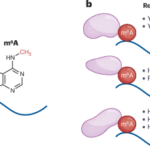
We all know that obesity disrupts the adaptability of adipose tissue, impairing its ability to regulate energy and metabolism. Recent research published in Cell Reports1 sheds light on how PPARγ agonists, like rosiglitazone, could help restore this adaptability by reprogramming adipose progenitors.
The study found that rosiglitazone treatment in obese mice increased the expression of ribosomal genes in adipocyte precursors, which are typically reduced in obesity. By enhancing translational selectivity of mRNAs related to adipogenesis and lipid metabolism, PPARγ activation helps restore adipose tissue function. Additionally, blocking protein translation with an eIF4A inhibitor halted adipogenesis, confirming the importance of translational regulation in fat cell development.
These findings suggest that targeting translation in adipose progenitors could be a promising therapeutic approach for obesity, improving adipose tissue plasticity and potentially restoring metabolic balance. This research is also a step forward in our understanding of how adipose tissue can be reprogrammed to function more efficiently, even in the context of obesity. By focusing on the translational machinery of fat cell precursors, scientists are uncovering new ways to target the root causes of obesity and metabolic disorders.











